Support Your Dog’s Digestion With Natural Probiotics for Dogs

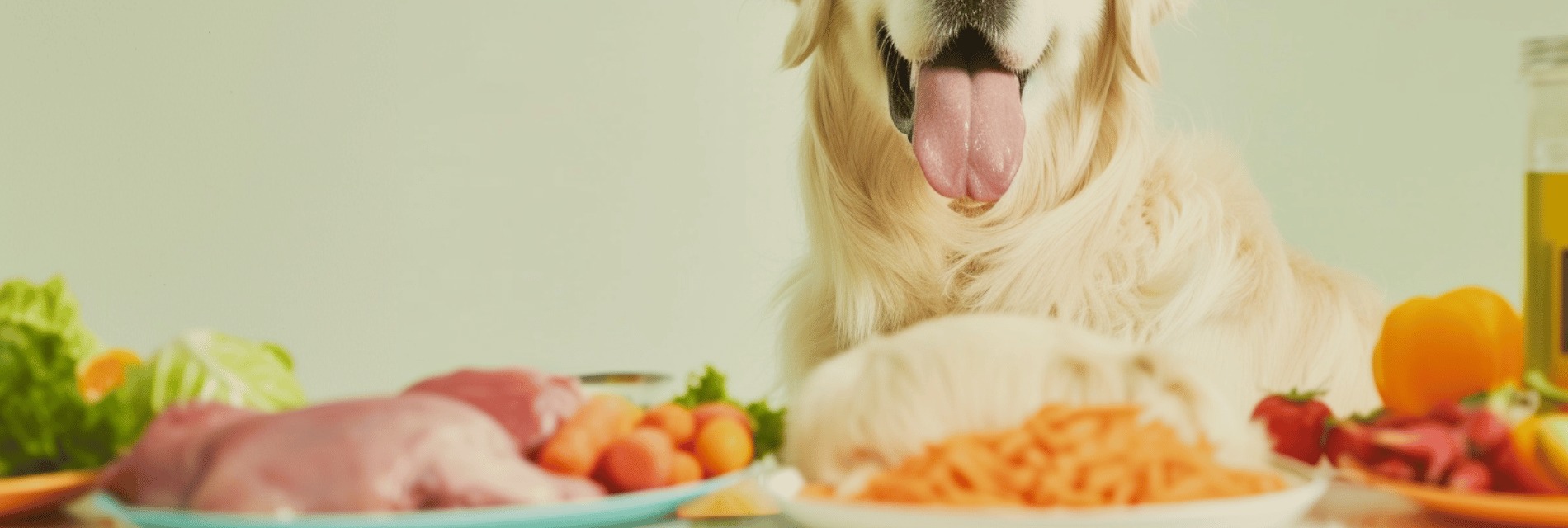
As a pet parent, you always want the best for your furry friend, and that includes ensuring their overall health and well-being. One aspect of your dog’s health that you may not often think about is their gut health. Just like humans, dogs have a complex digestive system that plays a crucial role in their overall health. A healthy gut can contribute to improved digestion, stronger immunity, and better nutrient absorption. One way to support your dog’s gut health is by incorporating natural probiotics into their diet.
This article explores the benefits of probiotics for dogs, dives into choosing the right natural options, and provides tips for incorporating them into your dog’s diet safely and effectively.
What Are Probiotics?
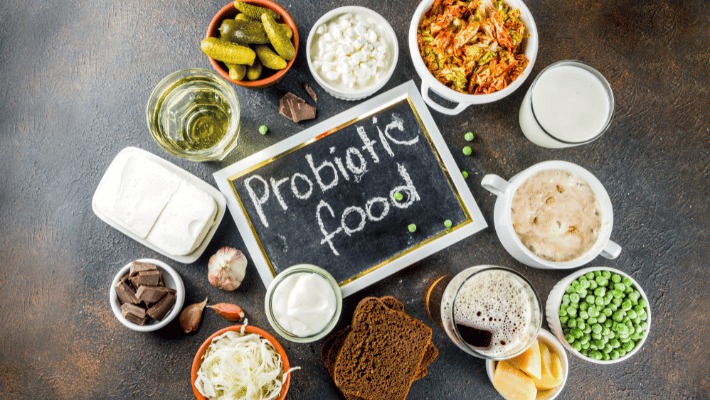
Probiotics are live microorganisms that provide health benefits when consumed in adequate amounts. They are often referred to as “good bacteria” and can help maintain a healthy balance of microorganisms in the gut, which is a complex ecosystem of trillions of microorganisms living in your intestines. A balanced gut microbiome plays a vital role in various aspects of the dog’s health.
For instance, when a dog’s gut is imbalanced, it can lead to various health problems. Factors such as a poor diet, stress, medication, or illness can disrupt the natural balance of bacteria in the gut, leading to an overgrowth of harmful bacteria. This imbalance can result in digestive issues, allergies, weakened immunity, and even behavioral problems.
Signs of an Imbalanced Gut in Dogs
It’s essential to be aware of the signs and symptoms that may indicate an imbalanced gut in your furry friend. Here are some signs that may indicate an imbalanced gut in dogs:
- Digestive Issues: Dogs with an imbalanced gut may experience gastrointestinal problems such as diarrhoea, constipation, excessive gas, bloating, or frequent vomiting. These symptoms can be chronic or intermittent.
- Changes in Appetite: A dog with a gut imbalance may exhibit a decreased or increased appetite. They may show disinterest in food or have difficulty maintaining a consistent eating pattern.
- Weight Changes: Unexplained weight loss or weight gain can be associated with an imbalanced gut. Dogs with dysbiosis may have difficulty absorbing nutrients properly, leading to weight fluctuations.
- Poor Coat or Skin Condition: An imbalanced gut can affect the dog’s skin and coat health. Dogs may exhibit dry, flaky skin, excessive shedding, itchiness, rashes, or recurrent skin infections.
- Increased Susceptibility to Infections: When the gut flora is imbalanced, the immune system may be compromised. Dogs may be more prone to infections, including urinary tract infections, ear infections, or frequent respiratory infections.
- Behavioural Changes: An imbalanced gut can influence a dog’s behaviour. They may exhibit increased restlessness, anxiety, irritability, or changes in sleep patterns.
- Foul Odour: Dogs with an imbalanced gut may have persistent bad breath or emit an unusual odour from their body or faeces.
- Food Intolerances or Allergies: Gut imbalances can contribute to the development of food intolerances or allergies. Dogs may show adverse reactions to certain foods, such as itching, gastrointestinal upset, or skin inflammation.
If you notice any of these signs, it’s a good time to add probiotics to your dog’s diet. It can help improve digestion, strengthen the immune system, and alleviate gastrointestinal issues such as diarrhoea and constipation.
How Natural Probiotics Benefit a Dog’s Digestive System
Probiotics can provide several benefits to a dog’s digestive system. Probiotics are beneficial bacteria that, when administered in adequate amounts, can help restore and maintain a healthy balance of gut microflora. Here’s how probiotics benefit a dog’s digestive system:
Restoring Gut Microflora Balance
Probiotics help restore the balance of beneficial bacteria in the gut, which can be disrupted by factors such as stress, antibiotics, dietary changes, or illness. This balance is crucial for proper digestion, nutrient absorption, and overall gut health.
Improved Digestion
Probiotics aid in the breakdown and absorption of nutrients from food. They produce enzymes that help break down complex molecules, making it easier for the body to digest proteins, carbohydrates, and fats. This improved digestion can alleviate symptoms such as diarrhoea, constipation, and bloating.
Enhanced Nutrient Absorption
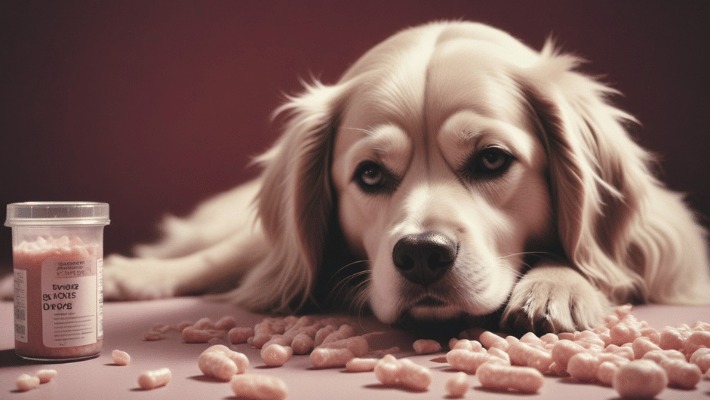
A healthy gut flora promotes efficient nutrient absorption. Probiotics help optimise the absorption of vitamins, minerals, and other essential nutrients from food, ensuring that a dog receives the maximum nutritional benefit from their diet.
Support for a Healthy Immune System
The majority of a dog’s immune system resides in the gut. Probiotics play a crucial role in supporting a robust immune response. They stimulate the production of immune cells, strengthen the gut barrier function, and help prevent harmful bacteria from colonising the gut.
Reduction of Digestive Upsets
Probiotics can help alleviate gastrointestinal issues such as diarrhoea, gas, and bloating. They can help regulate bowel movements, prevent the overgrowth of harmful bacteria, and improve overall gut health, leading to a more balanced and stable digestive system.
Alleviation of Food Sensitivities and Allergies
Probiotics may help modulate the immune response and reduce inflammation in the gut, which can be beneficial for dogs with food sensitivities or allergies. By promoting a healthier gut environment, probiotics may help mitigate adverse reactions to certain foods.
In addition to digestive and immune benefits, natural probiotics can also have a positive impact on your dog’s skin and coat health. Many skin conditions in dogs are linked to an imbalanced gut, and by restoring the natural balance of bacteria, probiotics can help alleviate itching, redness, and other skin problems.
It’s important to note that not all probiotics are the same, and different strains and formulations may have varying effects. The specific probiotic strains and dosage suitable for a dog can depend on their individual needs and health conditions. Consulting with a veterinarian is recommended to determine the most appropriate probiotic supplement for your dog’s digestive health.
Common Sources of Natural Probiotics for Dogs

Now that you understand the importance of natural probiotics for your dog’s gut health, you may be wondering where to find them. Fortunately, there are plenty of natural sources that you can incorporate into your dog’s diet.
Yogurt
One of the most accessible sources of natural probiotics for dogs is yoghurt. Look for plain, unsweetened yoghurt that contains live and active cultures. Avoid yoghurts with added sugars or artificial sweeteners, as these can be harmful to your dog. You can serve small amounts of yoghurt as a treat or mix it with your dog’s food.
Fermented Vegetables
Another source of natural probiotics is fermented vegetables. Foods like sauerkraut and kimchi are rich in beneficial bacteria and can be added to your dog’s meals in small amounts. Just make sure to choose fermented vegetables that are free of added sugars or spices.
Kefir
Kefir is another excellent option for natural probiotics. It is a fermented milk drink that contains a variety of beneficial bacteria and yeasts. You can find kefir in most health food stores, and it can be served to your dog as a standalone drink or mixed with their food.
Factors to Consider When Choosing Natural Probiotics for Dogs

When it comes to choosing natural probiotics for your dog, there are a few essential factors to consider. These are as follows:
Probiotics for dogs
It’s essential to look for probiotics specifically formulated for dogs. While some human probiotics may be safe for dogs, it’s best to consult with your veterinarian to find the most suitable option for your furry friend.
Probiotic Strains
Check the strain and number of live bacteria in the probiotic supplement. Different strains of bacteria have varying effects on the gut, so it’s important to choose a supplement that contains strains known to be beneficial for dogs. Common probiotic strains for dogs include Lactobacillus acidophilus, Bifidobacterium animalis, and Enterococcus faecium.
Number of live organisms
Additionally, look for products that provide a high number of colony-forming units (CFUs) per dose to ensure that your dog is getting an adequate amount of probiotics. The number of live probiotic organisms is typically measured in colony-forming units (CFUs),
It is an important consideration because higher CFU counts indicate a higher concentration of viable bacteria, which may be more effective in colonising the gut and providing beneficial effects.
Form of Probiotic Product
Consider the form of the probiotic supplement. Some come in powder or capsule form, while others are available as treats or chews. Choose a form that is convenient for you to administer and that your dog will enjoy.
Quality and Source
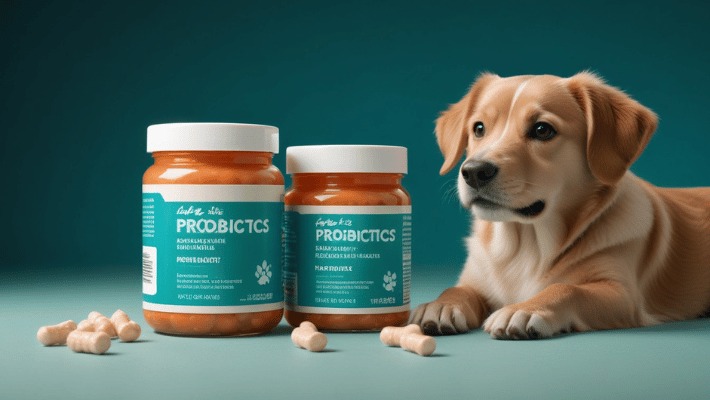
Look for probiotic products that are specifically formulated for dogs and are made by reputable manufacturers. Choose products that undergo rigorous quality control measures and are manufactured in facilities that follow good manufacturing practices.
Viability and Shelf Life
Probiotics are living organisms, and their viability is important for their effectiveness. Look for products that ensure the viability of the probiotic strains through proper formulation, packaging, and storage. Check the expiration date and follow the recommended storage conditions.
Additional Ingredients
Check the ingredient list for any potential allergens or unnecessary additives. Natural probiotics for dogs should ideally have minimal or no artificial flavours, colours, preservatives, or fillers. Some probiotic products may also include prebiotics, which are non-digestible fibres that help nourish the probiotic bacteria.
Veterinary Recommendations
Consult with your veterinarian before choosing a probiotic for your dog. They can provide guidance based on your dog’s specific health needs and any underlying conditions. They may also recommend specific brands or formulations that have been proven effective in their clinical experience.
Dog’s Health and Sensitivities
Consider your dog’s individual health condition, age, and any known sensitivities or allergies. Certain probiotic strains or formulations may be more suitable for dogs with specific digestive issues or sensitivities. Your veterinarian can help determine the most appropriate probiotic for your dog’s needs.
Incorporating Natural Probiotics into a Dog’s Diet
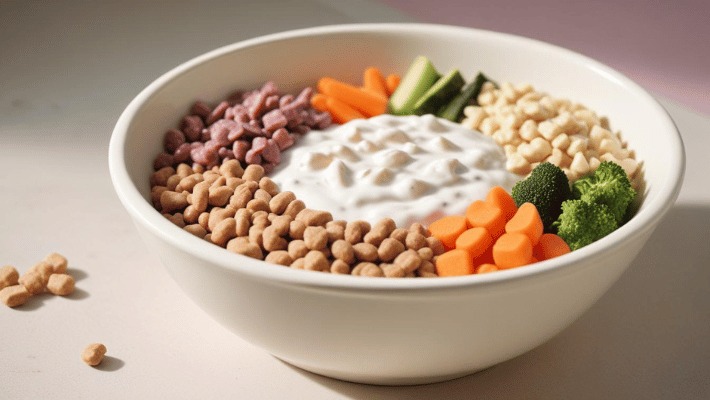
Once you have chosen a suitable natural probiotic for your dog, it’s time to incorporate it into their diet. Here are a few things you need to keep in mind:
Start small
Start by introducing small amounts of the probiotic supplement and gradually increase the quantity over time. This allows your dog’s digestive system to adjust to the new addition.
You can mix the natural probiotic you chose with your dog’s food or offer it as a treat. For instance, you can begin with a tiny amount, like a teaspoon of plain yoghurt or a sliver of fermented vegetables, and mix it with your dog’s regular food. Then, monitor their tolerance for 24-48 hours.
Consult Your Veterinarian First
Always discuss introducing new foods with your veterinarian before making any changes to your dog’s diet. They can advise on suitable options, portion sizes, and potential interactions with any medications your dog might be taking.
Here are some ideas on how to incorporate natural probiotics into your dog’s diet:
- Mix-ins: Add a small amount of plain yoghurt, kefir, or finely chopped fermented vegetables to your dog’s regular kibble or wet food.
- Frozen Treats: Mix a dollop of plain yoghurt or kefir with some mashed fruits or vegetables (safe for dogs) and freeze in ice cube trays for a refreshing probiotic popsicle.
- Stuffed inside a toy: Fill a Kong toy with plain yoghurt or kefir mixed with some dog-safe fruits or vegetables and freeze it for a long-lasting, probiotic-enriched chew toy.
It’s important to note that probiotics are not a quick fix and may take some time to show noticeable results. Consistency is key, so make sure to provide your dog with the recommended dosage daily for optimal benefits.
Precautions and Potential Side Effects of Natural Probiotics for Dogs
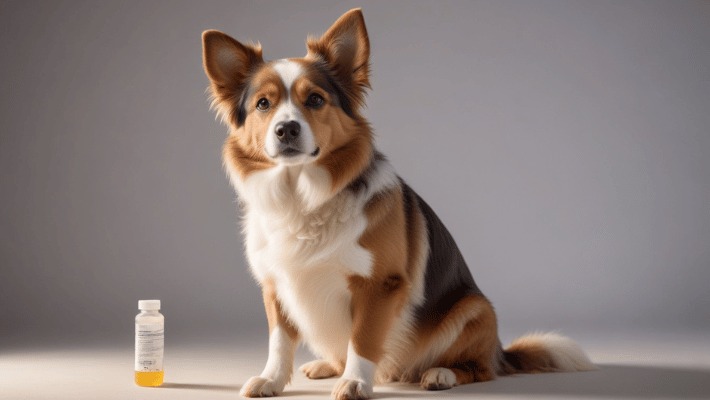
While natural probiotics are generally safe for dogs, it’s essential to take some precautions and be aware of potential side effects. If your dog has a compromised immune system or a severe illness, it’s best to consult with your veterinarian before introducing probiotics into their diet.
Some dogs may experience mild digestive upset when starting probiotics, such as gas or loose stools. This is usually temporary and should resolve within a few days as your dog’s gut adjusts to the new bacteria. If the symptoms persist or worsen, discontinue the probiotic and consult with your veterinarian.
Final Thoughts on Improving Your Furry Friend’s Gut Health with Natural Probiotics
Your dog’s gut health plays a vital role in their overall well-being, and incorporating natural probiotics into their diet can help support a healthy digestive system, strengthen their immune system, and improve their overall health.
By choosing the right probiotic supplement, introducing it gradually, and monitoring your dog’s response, you can unleash the power of natural probiotics and give your furry friend the gift of optimal gut health. So why wait? Start exploring the world of natural probiotics for dogs and give your furry friend’s gut health the boost it deserves!






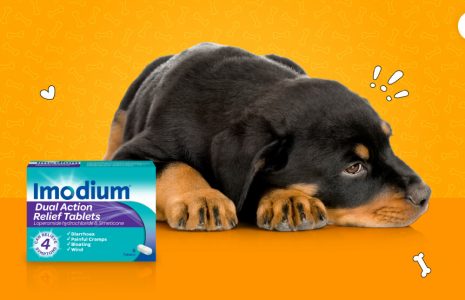
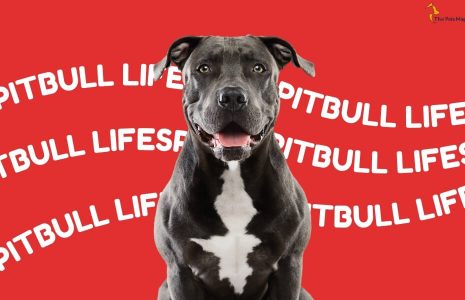

Leave A Comment